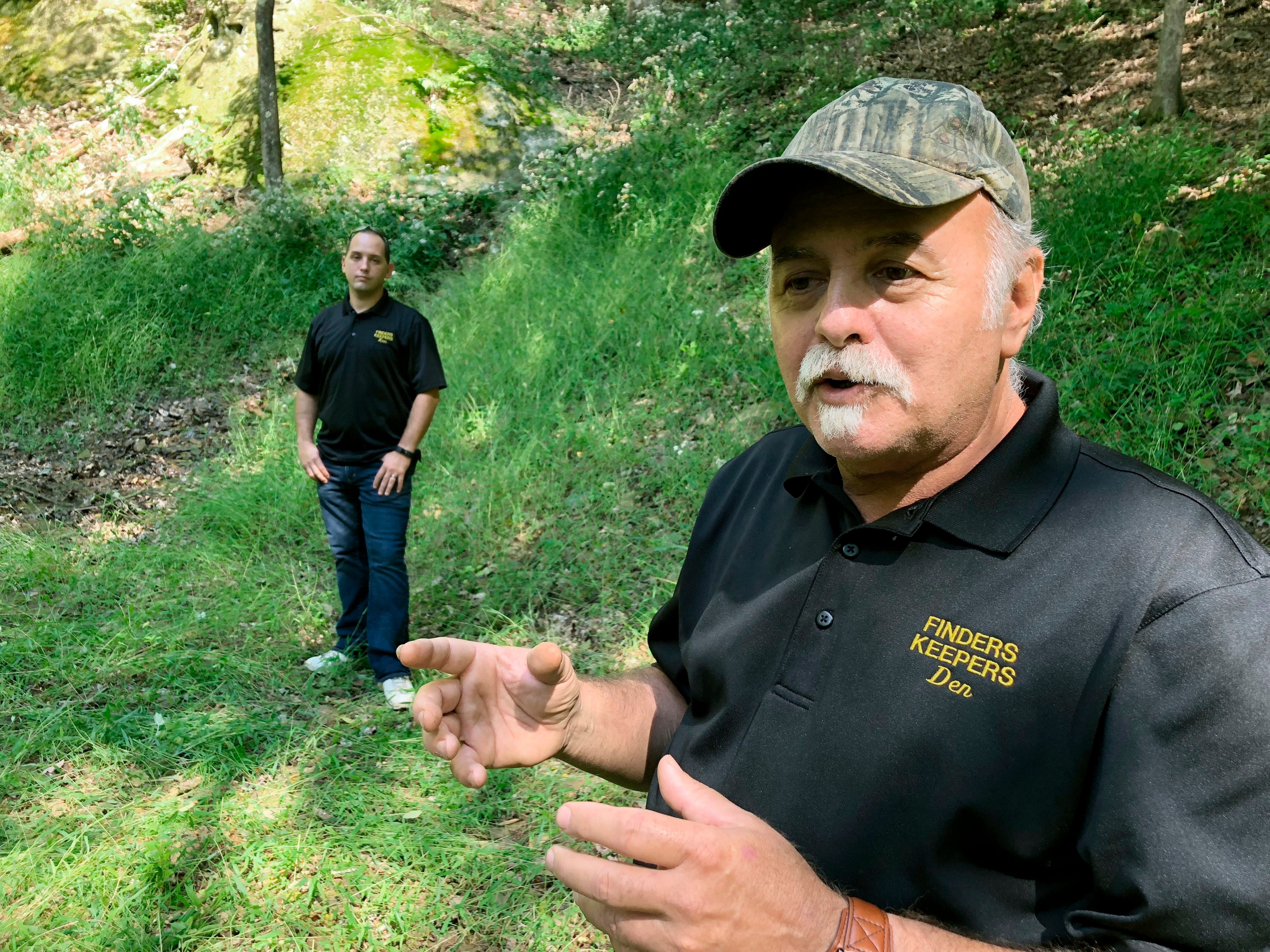Affidavit: FBI feared Pennsylvania would seize fabled gold
An FBI agent applied for a federal warrant in 2018 to seize a cache of gold that he said had been “stolen during the Civil War” while en route to the U.S. Mint in Philadelphia, and was “now concealed in an underground cave” in northwestern Pennsylvania

Your support helps us to tell the story
From reproductive rights to climate change to Big Tech, The Independent is on the ground when the story is developing. Whether it's investigating the financials of Elon Musk's pro-Trump PAC or producing our latest documentary, 'The A Word', which shines a light on the American women fighting for reproductive rights, we know how important it is to parse out the facts from the messaging.
At such a critical moment in US history, we need reporters on the ground. Your donation allows us to keep sending journalists to speak to both sides of the story.
The Independent is trusted by Americans across the entire political spectrum. And unlike many other quality news outlets, we choose not to lock Americans out of our reporting and analysis with paywalls. We believe quality journalism should be available to everyone, paid for by those who can afford it.
Your support makes all the difference.An FBI agent applied for a federal warrant in 2018 to seize a cache of gold that he said had been “stolen during the Civil War” while en route to the U.S. Mint in Philadelphia and was “now concealed in an underground cave” in northwestern Pennsylvania according to court documents unsealed Thursday.
The newly unsealed affidavit confirms previous reporting by The Associated Press that the federal government had been looking for a legendary cache of gold at the site, which the agency had long refused to confirm. In any case, the agency said, the dig came up empty.
The AP and The Philadelphia Inquirer petitioned a federal judge to unseal the case. Federal prosecutors did not oppose the request, and the judge agreed, paving the way for Thursday’s release of documents.
"I have probable cause to believe that a significant cache of gold is secreted in the underground cave" in Dent’s Run, holding “one or more tons” belonging to the U.S. government, wrote Jacob Archer of the FBI's art crime team in Philadelphia.
Archer told the judge he needed a seizure warrant because he feared that if the federal government sought permission from the Pennsylvania Department of Natural Resources to excavate the site, the state would claim the gold for itself.
“I am concerned that, even if DCNR gave initial consent for the FBI to excavate the cache of gold secreted at the Dent's Run Site, that consent could be revoked before the FBI recovered the United States property, with the result of DCNR unlawfully claiming that that cache of gold is abandoned property and, thus, belongs to the Commonwealth of Pennsylvania,” the affidavit said.
Additionally, Archer said, a legislative staffer who said he was acting on behalf of others in state government had met with the treasure hunters who identified the likely site and “corruptly” offered to get them a permit to dig “in return for three bars of gold or ten percent” of whatever the treasure hunters recovered.
No one has been charged in connection with the case, and federal prosecutors say they consider the matter closed.
The FBI had long refused to explain exactly why it went digging on state-owned land in Elk County in March 2018, saying only in written statements over the years that agents were there for a court-authorized excavation of “what evidence suggested may have been a cultural heritage site.”
According to the affidavit, the FBI based its request for a seizure warrant partly on work done by a father-son pair of treasure hunters who had made hundreds of trips to the area. The duo told authorities they believed they had found the location of the fabled Union gold, which, according to legend, was either lost or stolen on its way to the U.S. Mint in 1863.
After meeting with the treasure hunters in early 2018, the FBI brought in a contractor with more sophisticated instruments. The contractor detected an underground mass that weighed up to nine tons and had the density of gold, the affidavit said.
That amount of gold would be worth hundreds of millions of dollars.
Archer wrote that he also spoke with a journalist who had done extensive research on a Civil War-era group called the Knights of the Golden Circle. The KGC, Archer wrote, was a secret society of Confederate sympathizers that had purportedly “buried secret caches of weapons, coins, and gold and silver bullion, much of which was stolen from robberies of banks, trains carrying payroll of the Union Army during the Civil War and from northern army military posts, in southern, western and northern states."
Archer said that a turtle carving found on a rock near the proposed dig site was “very likely ... a KGC marker for that site."
Archer wasn't able to confirm the U.S. Mint had actually missed any expected shipments of gold because the Mint did not have records for the Civil War period, the affidavit said.
Dennis and Kem Parada, co-owners of the treasure-hunting outfit Finders Keepers, have said they believe the FBI found gold at the site and have pursued legal action to get more information.
The FBI assertion of an empty hole is “insulting all the credible people who did this kind of work,” Dennis Parada previously told the AP. “It was a slap in the face, really, to think all these people could make that kind of mistake.”